Zongwang Li
ESPN: Memory-Efficient Multi-Vector Information Retrieval
Dec 09, 2023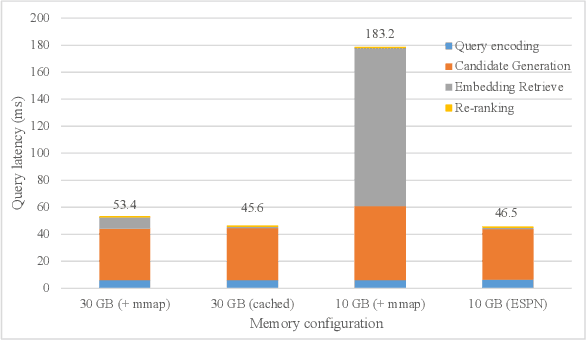



Abstract:Recent advances in large language models have demonstrated remarkable effectiveness in information retrieval (IR) tasks. While many neural IR systems encode queries and documents into single-vector representations, multi-vector models elevate the retrieval quality by producing multi-vector representations and facilitating similarity searches at the granularity of individual tokens. However, these models significantly amplify memory and storage requirements for retrieval indices by an order of magnitude. This escalation in index size renders the scalability of multi-vector IR models progressively challenging due to their substantial memory demands. We introduce Embedding from Storage Pipelined Network (ESPN) where we offload the entire re-ranking embedding tables to SSDs and reduce the memory requirements by 5-16x. We design a software prefetcher with hit rates exceeding 90%, improving SSD based retrieval up to 6.4x, and demonstrate that we can maintain near memory levels of query latency even for large query batch sizes.
Reconstruction-Computation-Quantization (RCQ): A Paradigm for Low Bit Width LDPC Decoding
Nov 17, 2021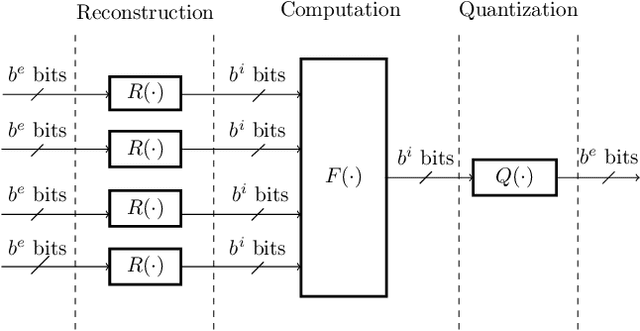
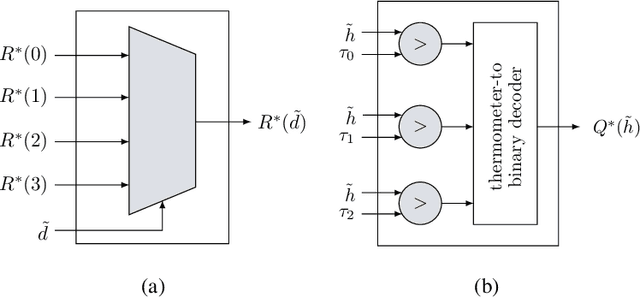
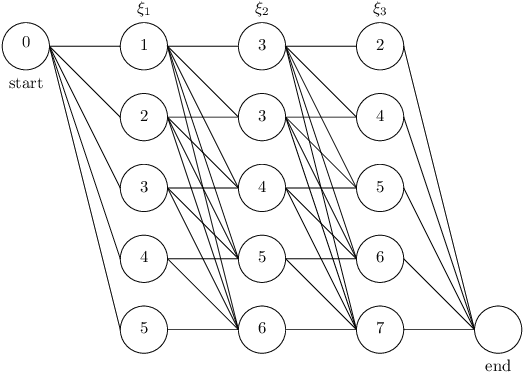
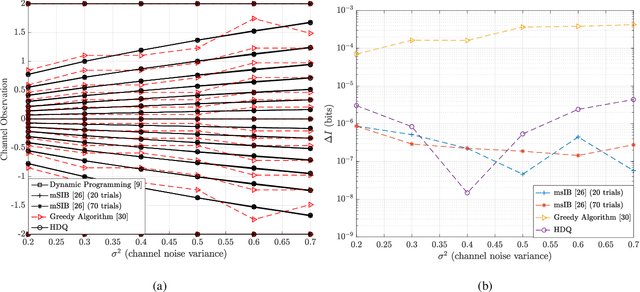
Abstract:This paper uses the reconstruction-computation-quantization (RCQ) paradigm to decode low-density parity-check (LDPC) codes. RCQ facilitates dynamic non-uniform quantization to achieve good frame error rate (FER) performance with very low message precision. For message-passing according to a flooding schedule, the RCQ parameters are designed by discrete density evolution (DDE). Simulation results on an IEEE 802.11 LDPC code show that for 4-bit messages, a flooding MinSum RCQ decoder outperforms table-lookup approaches such as information bottleneck (IB) or Min-IB decoding, with significantly fewer parameters to be stored. Additionally, this paper introduces layer-specific RCQ (LS-RCQ), an extension of RCQ decoding for layered architectures. LS-RCQ uses layer-specific message representations to achieve the best possible FER performance. For LS-RCQ, this paper proposes using layered DDE featuring hierarchical dynamic quantization (HDQ) to design LS-RCQ parameters efficiently. Finally, this paper studies field-programmable gate array (FPGA) implementations of RCQ decoders. Simulation results for a (9472, 8192) quasi-cyclic (QC) LDPC code show that a layered MinSum RCQ decoder with 3-bit messages achieves more than a $10\%$ reduction in LUTs and routed nets and more than a $6\%$ decrease in register usage while maintaining comparable decoding performance, compared to a 5-bit offset MinSum decoder.
 Add to Chrome
Add to Chrome Add to Firefox
Add to Firefox Add to Edge
Add to Edge